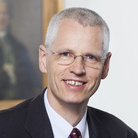Episode 135: Reenergizing the German Economy
The German economy is stagnating, and Chancellor Friedrich Merz has promised an autumn of reforms. But are the government’s policies enough to restore competitiveness? Berenberg Chief Economist Holger Schmieding joins …

The German Puzzle
What is wrong with Germany? The erstwhile powerhouse of Europe has turned into the only major economy that looks set to contract in 2023. The export machine is stumbling, residential …

AGI Asks: What Is Angela Merkel’s Impact on the Global Economy
AGI asks: What is the significance of Angela Merkel’s policies for the global economy? Krzysztof Bledowski Manufacturers Alliance for Productivity and Innovation The Germans will look back at Angela Merkel’s …

Trade Imbalances: Does the German Current Account Surplus Need to Be Corrected?
U.S. president Donald Trump has recently imposed tariffs on imports of steel and aluminum. The goal of his protectionist approach is to protect the domestic industry against competition he views …
Europe at 60: A German View
In the last sixty years, the institutionalized cooperation between sovereign nation states in Europe has been a major success. Underpinned by a U.S. commitment to the defense of Europe, European integration …
ECB Turning into a “Bad Bank”? Nonsense
Adequate ECB Policy Reduces Risks For five years, many German academics and the mass media have warned that the unconventional policies of the European Central Bank (ECB) would lead to …




